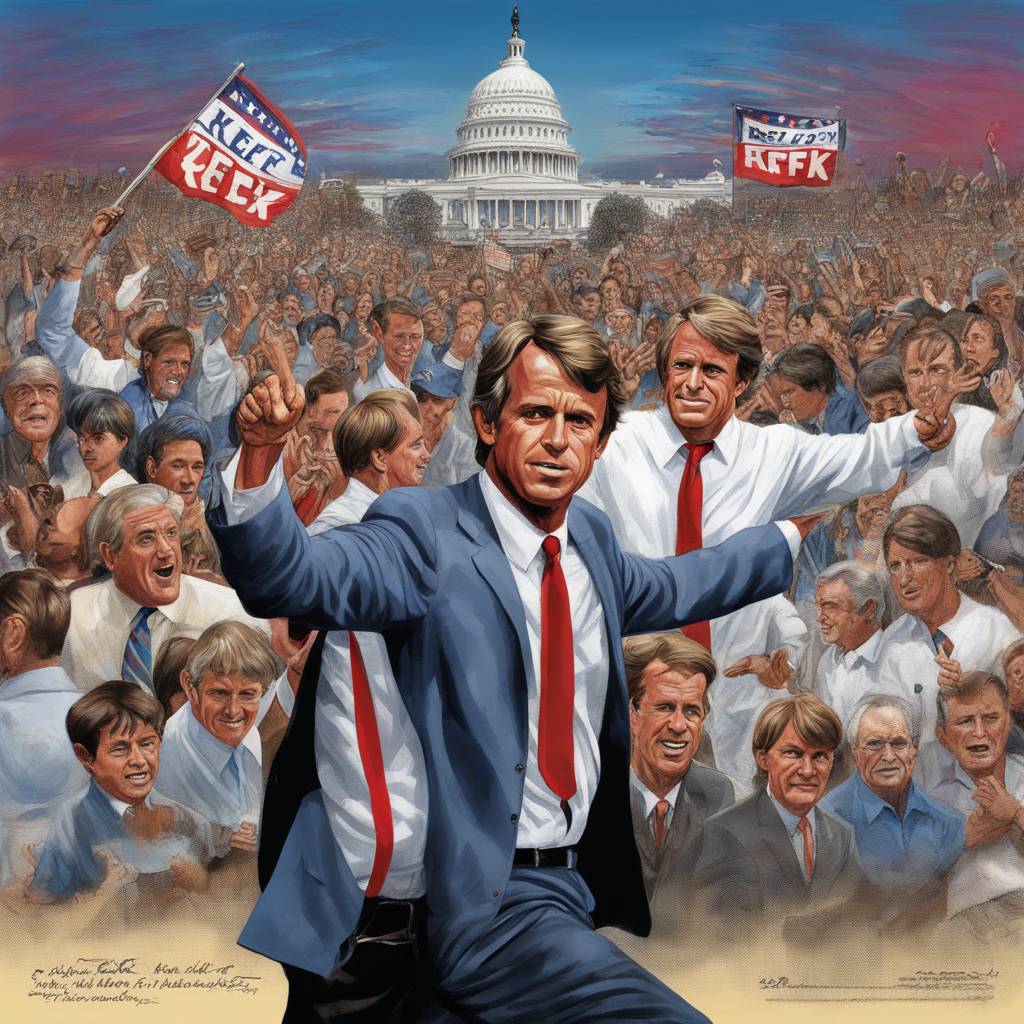Democrats are concerned about Robert F. Kennedy Jr.’s independent presidential bid and are taking steps to counter the potential threat he poses to President Joe Biden’s reelection. Kennedy’s appeal is not fully understood, but he is polling at roughly 12% nationally against Biden and Trump. His campaign emphasizes that he does not fit into conventional political categories, representing a broad majority that has unsubscribed from the right-left paradigm. Kennedy’s campaign finance reports suggest his base may be people who have not been moved in recent elections to vote for a major-party candidate.
Historically, third-party candidates struggle to get more than 1% of the popular vote in presidential elections. Kennedy has collected enough signatures to get on the ballot in several key states, and his potential appeal to Trump voters is evident. He is a prominent vaccine skeptic and shares views on various issues that may appeal to conservative voters. A Democratic pollster suggests that Kennedy’s appeal on the right is more about the “anti-establishment, burn-it-all-down vibe,” which could help him win over voters who dislike both Biden and Trump.
Kennedy’s appeal seems to center on two distinct groups in internal polling: older voters with positive associations with the Kennedy name and younger voters who share his conspiratorial worldview. Examination of polling data shows that Kennedy’s candidacy could slightly pull more votes away from Biden than from Trump. The DNC is already working to define Kennedy early, recognizing that his candidacy could impact the upcoming election. Republicans, who initially supported Kennedy, have shifted their views and are highlighting his alignment with traditional liberal positions.
Kennedy’s choice of running mate, attorney Nicole Shanahan, may make it easier to portray him as a leftist. Shanahan’s background, including donations to progressive causes, suggests that the Kennedy campaign may be targeting a more left-leaning audience. However, some Republican donors still see Kennedy’s campaign as a benefit to Trump, contributing to both pro-Trump and pro-Kennedy super PACs. The lack of a dedicated initiative from the RNC to counter Kennedy suggests they do not view him as a significant threat to Trump’s reelection.
Overall, the dynamics of Kennedy’s independent presidential bid are complex, with potential appeal to voters across the political spectrum. His campaign’s rejection of traditional political categories and alignment with both liberal and conservative views may make it challenging for the major parties to effectively counter his candidacy. With the election still far off, it remains to be seen how Kennedy’s campaign will evolve and impact the political landscape leading up to the election.








